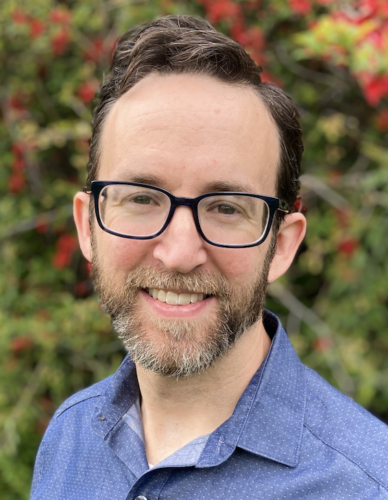The National Science Foundation Innovation Corps (NSF I-Corps) program has been instrumental in nurturing entrepreneurial potential in the world of research-based ventures. Ryan Manwaring, a Doctoral Prepared Psychiatric Nurse Practitioner, who specializes in pediatric and adult care, recently embarked on a transformative journey through the Desert and Pacific Region Hub of the NSF I-Corps program.

Manwaring discovered the NSF I-Corps program through his participation in the Idaho Ignite Summer Workshop, a program dedicated to helping faculty, post-doctoral, and graduate students from universities across Idaho advance their ideas. He joined the NSF I-Corps program with a determination to learn from seasoned professionals and enhance his entrepreneurial skills. As a clinician, Manwaring was not well-versed in startups so he sought further knowledge in the lean startup approach. He was intrigued by the opportunity to explore lean startup methodologies and conduct customer interviews throughout the program.
Manwaring participated in the NSF I-Corps Regional Program Hub (Desert and Pacific Region Hub) independently, without the support of a mentor or entrepreneurial lead. Manwaring’s idea revolves around a nonpharmacologic sleep aid for children, offering an alternative solution to conventional pharmaceutical interventions. Manwaring highlights the importance of assembling a dedicated team composed of a mentor, entrepreneurial lead, and principal investigator (PI) to progress his idea further.
Manwaring acknowledges the significance of the early identification of customer segments and interviews. These steps are crucial for gaining insights into customer pain points and validating the focus of a project. For prospective faculty, staff, students, and community members interested in participating, Manwaring advises them “to prioritize customer engagement and market research from the outset.”
The NSF I-Corps Regional Program Hub allowed Manwaring to connect with potential customers, understand their needs, and validate his project’s direction. This process of conducting numerous interviews enabled him to identify patterns and market opportunities. The validation received during this phase not only kept Manwaring motivated but also reinforced his commitment to pushing forward with his venture.
Looking ahead, Manwaring’s immediate goal is to assemble a dedicated team, including a mentor, entrepreneurial lead, and PI, which will enable him to submit an application for the NSF National I-Corps. Manwaring elaborates on his journey through the program and having, “ unwavering support from the I-Corps faculty and Cara Van Sant, Director of the Venture College.”
Manwaring’s biggest takeaway can be summed up in his own words: “The importance of doing many interviews so that you can really start identifying patterns, market opportunities, and the importance of pivoting.” He recognizes the value of customer feedback and the ability to adapt to evolving circumstances underscoring the essence of the lean startup philosophy.
Manwaring offers a recommendation for future cohorts: to ensure team cohesion before progressing to the Regional Program Hub. By allowing teams to establish a working history together, participants will have a stronger foundation for success at both the regional and national levels.
Manwaring’s journey through the NSF I-Corps program showcases the transformative impact the program has on innovative research-based ventures. As he forges ahead with his nonpharmacologic sleep aid for children, Manwaring’s experience serves as an inspiration to other aspiring entrepreneurs within the academic community. By leveraging the lessons learned from the program, Manwaring is well-positioned to make a lasting impact in the field of pediatric sleep health.